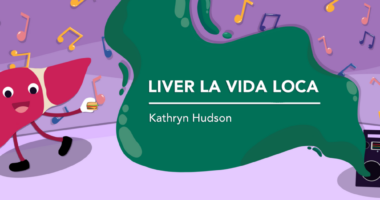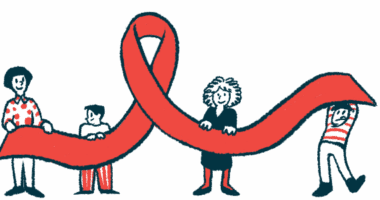Hepatitis B diet: Foods to eat and avoid for liver health
Last updated May 12, 2025, by Agata Boxe

Hepatitis B is an infection caused by the hepatitis B virus that causes liver inflammation. In some cases, it may lead to extensive liver scarring that can affect liver function, potentially resulting in liver failure or liver cancer.
Given that dietary choices can significantly influence liver function, eating a well-balanced hepatitis B diet is essential to support your liver health.
By learning what to eat with hepatitis B and which foods to avoid, you may help your liver recover from damage or prevent its worsening.
In addition to a hepatitis B nutrition plan, key lifestyle changes, such as exercising, avoiding alcohol, and quitting smoking, can help to keep your liver as healthy as possible.
Nutritional goals for people with hepatitis B
Choosing the best foods for liver health may help you manage your hepatitis B symptoms.
While there isn’t a specific hepatitis B diet, eating a Mediterranean diet rich in fruits, vegetables, whole grains, and healthy fats can support your liver health by lowering inflammation and providing essential nutrients to support a strong immune system.
A diet that limits processed, high-fat, and sugary foods can also help you maintain a healthy weight and reduce the risk of nonalcoholic fatty liver disease, a condition now known as metabolic dysfunction-associated steatotic liver disease that is marked by excessive liver fat buildup.
Foods to eat
The best foods for hepatitis B are packed with essential nutrients and include lean proteins, healthy fats, and fiber. Liver-friendly foods also include a variety of vegetables and fruits.
- Lean protein sources, such as fish, lean meats, eggs, tofu, and legumes, can help maintain muscle mass and repair liver cells damaged by the hepatitis B virus.
- Healthy, unsaturated fats, such as those in avocado, nuts, seeds, and olive oil, can reduce inflammation and are more easily broken down, putting less strain on the liver, which produces bile to help with the digestion of fats and fat-soluble vitamins.
- High-fiber foods, such as whole grains, vegetables, and fruits, can support a healthy digestive system and nutrient absorption, while helping you feel fuller for longer, making it easier to manage your weight.
Incorporating foods high in fat-soluble vitamin D, such as salmon and fortified dairy, and those high in antioxidants, such as berries and leafy greens, can further support your liver health.
Remember to drink plenty of water and other fluids to ensure smooth digestion, prevent dehydration, and maintain normal liver function. You can also boost hydration with water-rich fruits like watermelon, strawberries, and cantaloupe, which are especially beneficial in hot weather.
Foods to avoid
Just as important as knowing what to eat is understanding which foods to avoid with hepatitis B. Certain foods, such as processed foods and those high in sugar and sodium, can strain the liver and contribute to inflammation.
Processed foods
Highly processed foods are often high in calories, saturated fat, and sugar, and have been linked to liver problems.
Examples include:
- breakfast cereals
- fried foods
- sugary drinks
- fast food
- processed deli meats.
Processed foods with artificial colors, preservatives, or other additives can also put unnecessary stress on the liver. Sugar-heavy foods and drinks, such as candy, baked goods, and sodas, can cause fat to accumulate in the liver, adding further strain to the organ.
High-sodium foods
Because liver dysfunction can cause fluid retention and swelling, high-sodium foods can aggravate this, worsening symptoms of liver disease, and increasing blood pressure.
Foods with high levels of sodium include:
- processed meats
- canned soups
- salty snacks
- restaurant meals.
Instead of seasoning your meals with salt, try adding flavor with spices, herbs, and marinades.
Other foods to avoid
When putting together a diet for liver disease, raw or undercooked shellfish should also be avoided because they may contain a type of bacteria that is potentially harmful to the liver.
Finally, for people with hepatitis B, smoking and alcohol can worsen liver damage, as the organ is responsible for removing toxic components from the body. Also, when combined, smoking and alcohol consumption can increase the risk of liver cancer, so consider eliminating them completely.
Meal planning and lifestyle tips
Living with hepatitis B often involves fatigue and other symptoms that can make it challenging to eat well. Meal planning and other strategies can help you maintain a healthy diet.
- Try to plan your meals ahead of time, and, based on this information, create a list of ingredients to buy to prepare meals for the week.
- Look for recipes you can freeze and warm up when you feel too tired to cook.
- Ask a nutritionist or a registered dietitian to suggest specific meal ideas suited to your needs and symptoms.
- Practice portion control as much as possible by filling your plate with plenty of cruciferous veggies, such as broccoli, kale, and cabbage, which are believed to be good for the liver.
- Buy pre-chopped fruits and vegetables to help conserve energy.
- Avoid supplements and herbal remedies, which may harm the liver, unless prescribed by your doctor.
- Consult a physical therapist for exercise tips, as a well-designed workout program can complement your diet and benefit your liver health.
Along with regular medical care, these dietary and lifestyle choices can play a vital role in enhancing your quality of life while living with hepatitis B.
Liver Disease News is strictly a news and information website about the disease. It does not provide medical advice, diagnosis, or treatment. This content is not intended to be a substitute for professional medical advice, diagnosis, or treatment. Always seek the advice of your physician or other qualified health provider with any questions you may have regarding a medical condition. Never disregard professional medical advice or delay in seeking it because of something you have read on this website.
Recent Posts
- Oregon gets $7.5M US grant to treat HCV with telehealth, peer support
- Aramchol shows promise as PSC treatment, mouse study finds
- A new tool may help predict your future with liver disease
- ALF unveils network to connect living donors with strangers in need
- Drug combo shrinks liver fat in rats and zebrafish: Study




